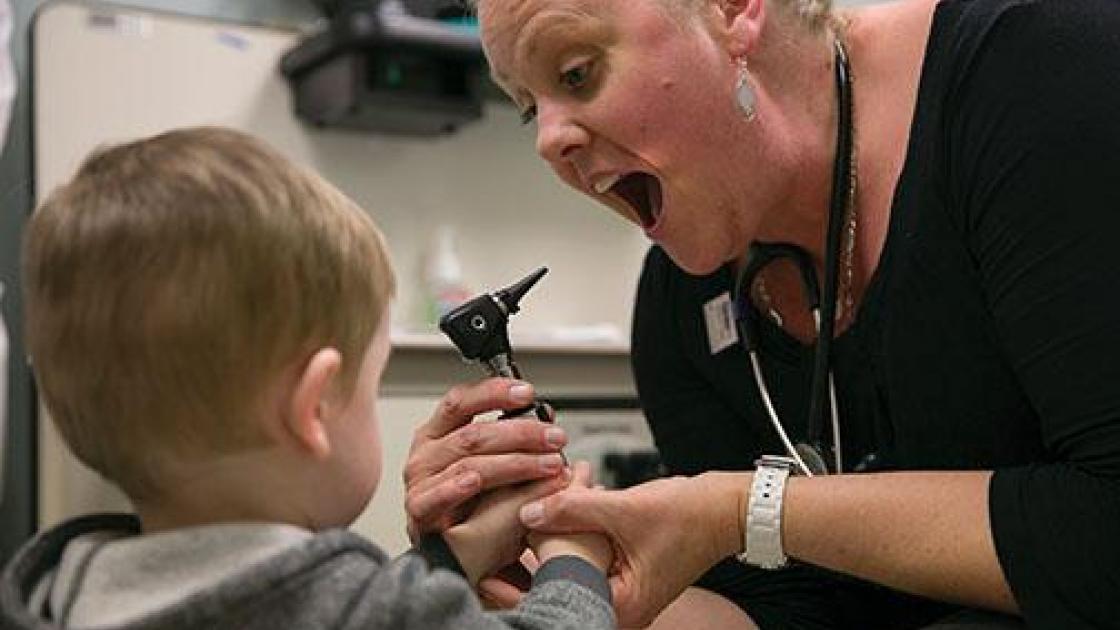
Top reasons to see an ear, nose and throat specialist
Did you know that otorhinolaryngology is the oldest medical subspecialty in the United States? This branch of medicine features extensively trained clinicians and surgeons who diagnose and manage conditions affecting the ear, nose and throat (ENT).
At SIU Medicine, our ENT team can help you or your loved one manage a wide variety of conditions affecting this area of the body. Check out the top reasons why people come from all over the U.S. to work with our ENT specialists.
1. Sinus issues
Sinus issues are often described as issues with congestion, swelling, and decreased sense of smell. These symptoms are most often a result of infection or allergies. These milder symptoms can develop into much larger sinus issues down the line. Here is a look into some of the sinus issues our SIU Medicine specialists treat:
- Chronic Sinusitis
- Nasal Polyps
- Nasal Congestion
- Endoscopic Sinus Surgery
- Pituitary Tumors
- Sinus Tumors
- Orbital decompression for thyroid eye disease
- SF leak through the nose
2. Voice and airway issues
Voice issues or disorders are medical conditions involving abnormalities of the sound produced by the larynx (voicebox) – specifically the vocal cords. Not being able to make sound, hoarseness/breathiness/raspiness of your voice, hearing noise (stridor) when you breathe in or out, and/or constantly clearing your throat or coughing are all symptoms of a possible voice disorder. Voice and airway issues treated by SIU Medicine ENT specialists include:
- Hoarseness
- Laryngitis
- Vocal cord paralysis/weakness
- Vocal Fold Nodules
- Vocal Cord cysts
- Spasmodic Dysphonia (Tremor of Voice)
- Laryngoceles
- Subglottic or tracheal stenosis
3. Swallowing issues
Swallowing problems may be the result of infection, abnormal development, injury or treatment like chemotherapy or radiation, brain dysfunction/injury (e.g. stroke or motor vehicle accident), or narrowing of the esophagus. Treatments of swallowing problems are offered for adult and pediatric patients.
- Difficulty Swallowing
- Regurgitation of Food
- Food Sticking in your throat or chest
- Too much or too little saliva (drooling or dry mouth)
4. Facial nerve issues
Facial nerve issues or disorders are commonly caused by infection, injuries, or other existing conditions. Typical symptoms of facial nerve issues include weakness of your face, lack of facial expression or movement, and difficulty speaking, eating, drinking, or blinking. Facial nerve issues treated by the SIU Medicine ENT team include:
- Asymmetry of the face after trauma or nerve injury
- Inability to close the eye completely
- Crooked smile
- Asymmetric forehead
At SIU Medicine, our ENT surgeons have specialized training in the above areas and are able to offer diagnostic and therapeutic ENT services not offered anywhere else in central Illinois.
Could an ENT consult help you?
Whether you or a loved one has chronic sinusitis (a condition affecting as many as 35 million Americans per year), head or neck cancer, hearing loss, a cleft lip, or some other condition affecting the ear, nose, or throat, know that SIU Medicine is a valuable resource for you. Our staff is committed to providing the best possible care based on the latest advances in medical care and technology—something we have close access to as an academic medical center.




